Words by Lauren L. Hill. Illustrations by Mele Saili.
In Ancient Mesopotamia, it was understood that mother goddess Ninhursag fashioned men from loam and her “blood of life.” In their culture, women wishing for conception were encouraged to make their own dolls from loam (fertile soil for growing) and to anoint them with their own menstrual blood. In their culture, women’s periods were reverentially understood as powerful.
But most of us didn’t come of age in cultures that celebrate the power of the period. When I first bled, around 13, I was too embarrassed to tell my mom, so I borrowed a box of pads from a friend. Later, my mom gave me a box of tampons and obviously felt emotional about the fact, but she didn’t have the words or tools to explain why. I had no idea how to use a tampon but eventually got it right after numerous consults with the enclosed leaflet.
I knew I would have a period but was unprepared for days of blood trickling from my body, and the spectrum of emotions and sensations the process ushered. What I did understand, however, was that it was something to be made invisible. The cultural agreement: make it go away. 
During university, I used to talk about vaginas a lot. Not necessarily my own, just their general power, mystery, and intrigue. I worked on and directed local productions of The Vagina Monologues to create a supportive space for women to talk about vaginas. I was part of a two-woman group that held annual Radical Menstruation Days outside of the school cafeteria, bombarding college students with DIY pad patterns and stats about the amount of waste created by disposable plastic period products.
This was part of my personal reclamation of the words and natural processes of my body, that I’d been made to feel so many things about: shame, grossness, uncleanliness, etc.
After university, I had the first of a series of abnormal pap smears. It wasn’t until after I had a (ultimately totally unnecessary) LEEP excision, or cutting/burning away of the opening of my cervix, that I was really motivated to deeply understand my relationship with my cycle, cervix, and the simultaneously personal and political implications of bleeding. I wouldn’t have gone through that surgery had I known what I know now.
Just to get on the same page (because I didn’t really know until I had to), the cervix is the lower part of the uterus. It’s the tubular gateway between the vaginal canal and the spacious womb. For menstruators, the womb is where thick, glandular tissue grows each, or most, months to prepare for the potential of nurturing a blastocyst, or 200-300 teeny tiny miraculously replicating cells, into a new human. Wavering levels of hormones like estrogen and progesterone inform our bodies of whether or initiate the process of pregnancy or menstruation.
If a fertilized egg doesn’t implant, the “functional layer” of the endometrium, or inner layer of the uterus, sheds away. This is a period.
Rather, this is the Western, medicalized, anatomical description of what is happening physiologically during menstruation. We are one of ten mammal species who experience the process of bloodshed, mostly primates, but also including bats, and two species of rodents.

After my own cervical complications, I dove deeply into the work of holistic doctors, herbalists and other witchy women who wrote and lectured about the ways we are encouraged to be so radically disconnected from the wisdom of our bodies.
As surfers, we have a sincere advantage in both embodiment and the nature of regenerative cycles. We know intimately the cyclical effect of tide and the transformative pull of the moon on the Earth’s largest bodies of water. We understand the difference that the period makes in the arrival of swell on our home beaches. It determines whether there are chaotic, wild conditions or a spacious watery playing field. We understand that each season on a beach brings different gifts and conditions; winter for mid-lengths, summer for logs. We already know that cycles matter.
The male minds that built our language and medical systems have a history of framing menstruation in terms of debility, illness or weakness. And perhaps periods do bring shades of those experiences for many women—but they can also be much more.
What scientific analysis doesn’t capture is the soft-minded, gentle, deep contentedness that I experience after the first hours of bleeding. I feel so calm and restful in my body and absolutely uninterested in being anything to anyone else. Sure, I can’t paddle against the onslaught of shore break, but I feel so fluid and easeful, like my internal waters are just part of the great cosmic river flowing onward. If I properly surrender to the experience, it really can feel quite blissful. If I am not able to surrender to solitude, everything feels difficult. I have no patience. Everything annoys me. 
We live in a culture where we’re taught that we should just pop some pills, stuff a dry wad of cotton up there and pretend like nothing is happening. Or even chemically eliminate our periods altogether. Our economic system, built of infinite growth and ruthless productivity, demands that we ignore our bodies if we are to keep up with demands. After all, men carry on without notice of their cycles.
But bleeding begs us back into our bodies to confront the fact that we are different than men and that equality based on sameness is not real. Sometimes it feels like a betrayal, a period landing on the same day as the big comp, or the big presentation. Periods can mean so many things: the joy of not being pregnant, the heartbreak of not being pregnant, the unknowingness of perimenopause, the pain of endometriosis, the pressure of pulsing fibroids flooded with blood.
Even if you aren’t of the New Age-ish ilk who romanticize their monthly, what we can all agree on is that potency is there. That, for some of us, menstruation can be a portal back into our intuitive selves, where our “blood of life” connects us to all that ever was or will be: to the building blocks of life. Bleeding is part of the process that allows for the perpetuation of our species, but it is also a cellular rebirth, making new life within us by way of shedding old and regenerating new cells. It’s the most essential magic there is. 
Besides the ancient symbolisms, understanding our cycle means reclaiming our power to work with our bodies as we flesh out our creativity, athletic performance or intellectual acuity. At Seea, I was pleasantly surprised by a conversation about our periods.
“I think the best part of being a surfer is becoming innately aware of what nature is doing around you. After decades of charting tides and swell angles, I’m just coming to realize that women have the added advantage of being able to chart themselves as part of this equation,” Lisa Carolla said. “In tracking your cycle, you’re able to forecast everything you bring to your session."
Lisa continued on by telling us about a Facebook Video that taught her more practical period information than she’d learned anywhere else. The video features personal trainer James Smith, who clearly and succinctly links performance with hormones. He posits that we are physiologically different across the stages of our cycle and that we shouldn’t compare our performance at the middle of our cycle, with what we’re capable of later in the month.
Rhea chimed in that she’s “tracked and taken notes about my feelings, mood, cravings, and energy through different stages of my cycle. Over the following months, I discovered a consistent pattern in the ebbs and flows of my hopefulness and creativity, and used this to optimize my productivity.”
And says that she “learned that there are a right day and time for anything I wanted to accomplish or feeling that I wanted to feel, and it's OK if that day or time is not today. By paying attention to my body (when I was capable and confident and when pain or fatigue told me to stop), I learned that our bodies are always communicating with us. We just have to listen to it.”
In a culture that encourages and rewards extroverted go-getters and workaholics, surrendering to menstruation is counter-cultural. Deep listening is radical. There’s power in understanding our own rhythms.
Irish big wave surfer Easky Britton recently released a digital short film, Lunar, that explores her relationship with her own cycle within the myriad cycles of the more-than-human-world. Through her own intimate process of learning her body, she’s rekindled “a powerfully feminine form of leadership through cycle awareness,” that centers her in connection both to herself and the living planet.
Rather than weakness or impairment, what if we reframed our monthly cycles of regeneration as portals of insight? As a regular reminder to rest, check in, and shed away all that is not nourishing us?

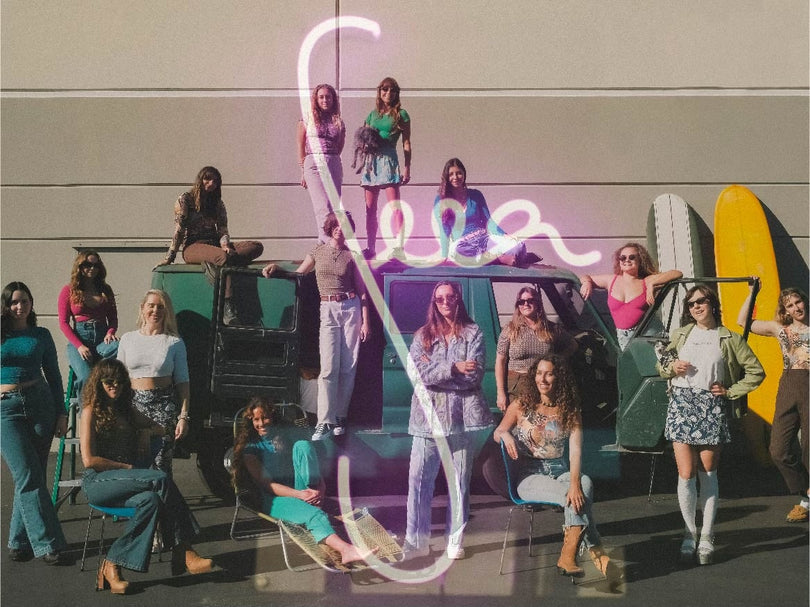


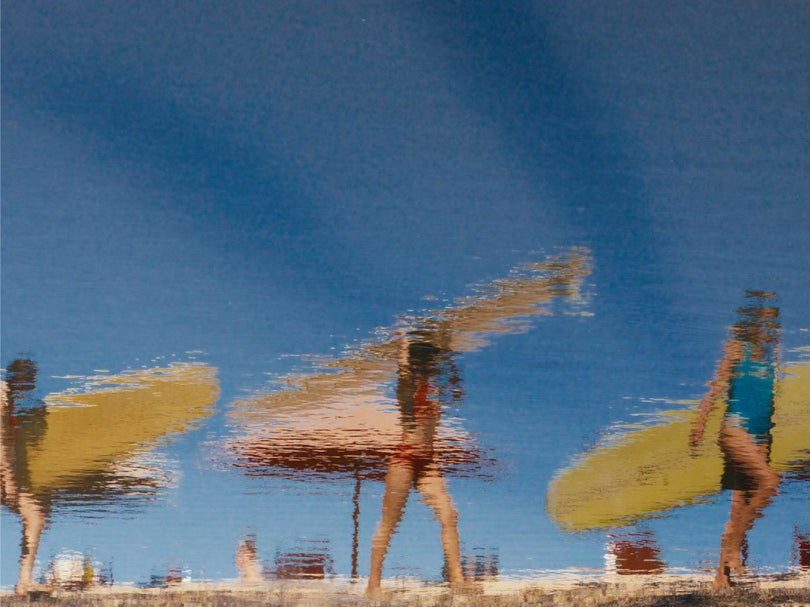
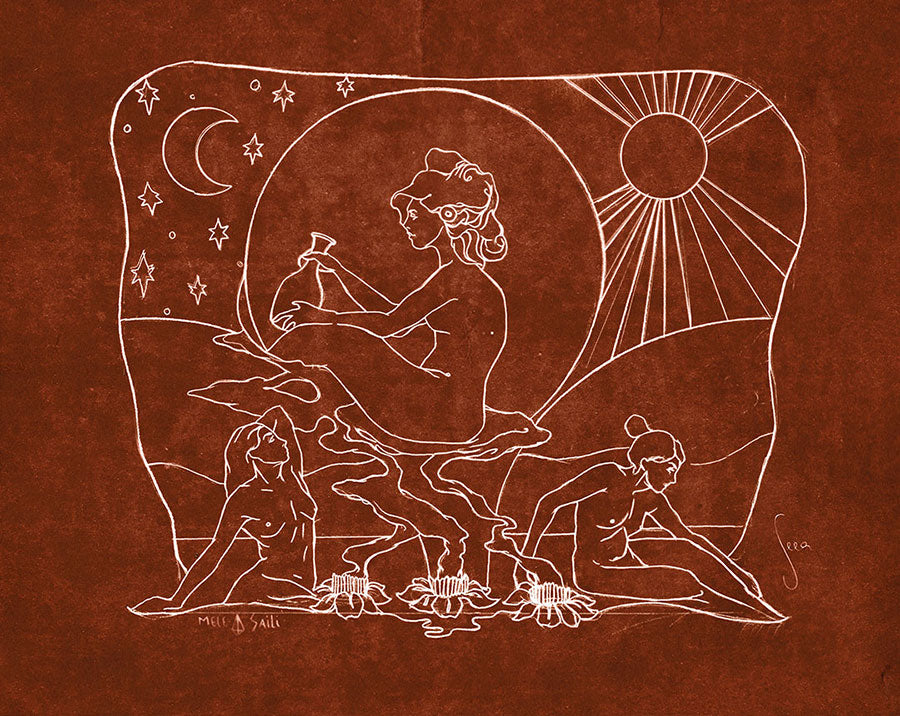
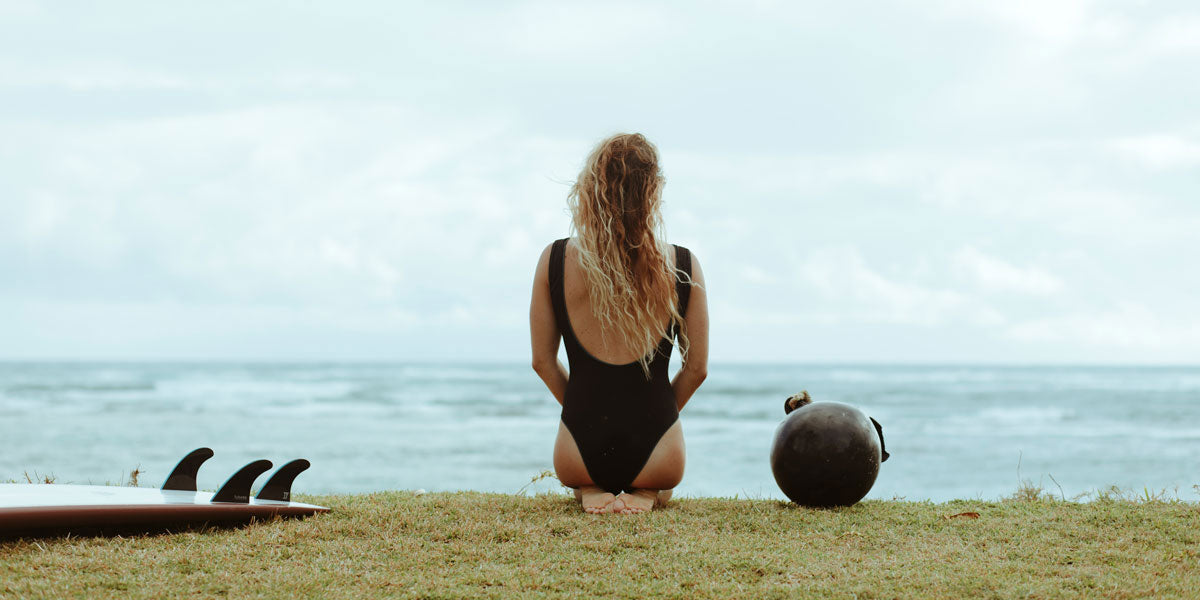
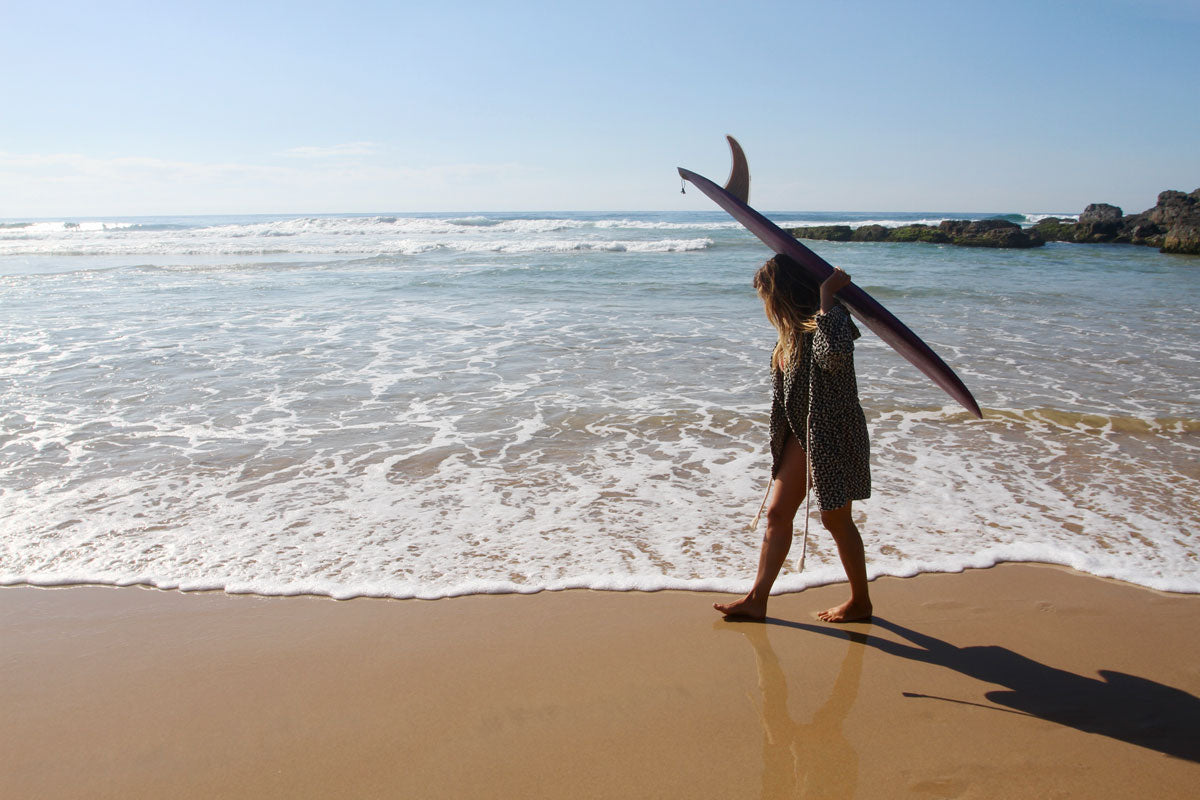
2 comments
Alison R Perks
Amazing article, poignant to the core! Thanks for writing about this to bring awareness to the cycle and acceptance of ourselves as women and creators!
Amazing article, poignant to the core! Thanks for writing about this to bring awareness to the cycle and acceptance of ourselves as women and creators!
Kelly Thompson
Great article! Thanks for writing and talking about things like this. All of these thoughts have crossed my mind and it’s nice to know I’m not alone :)
Great article! Thanks for writing and talking about things like this. All of these thoughts have crossed my mind and it’s nice to know I’m not alone :)